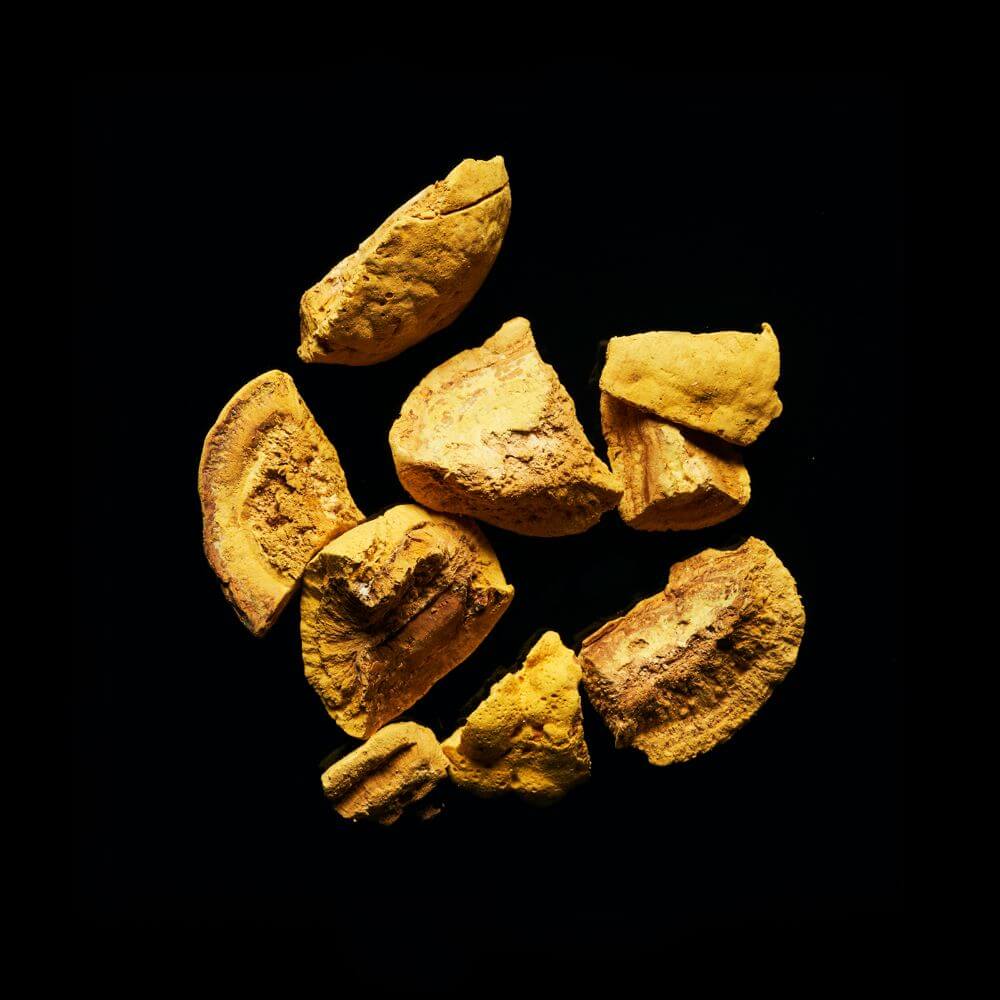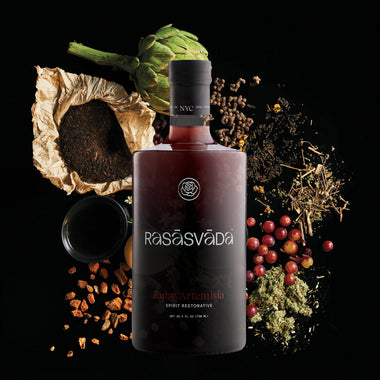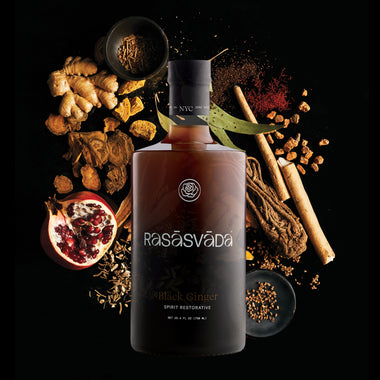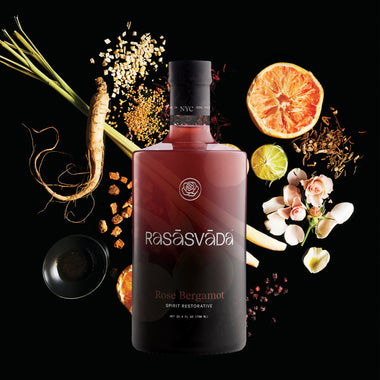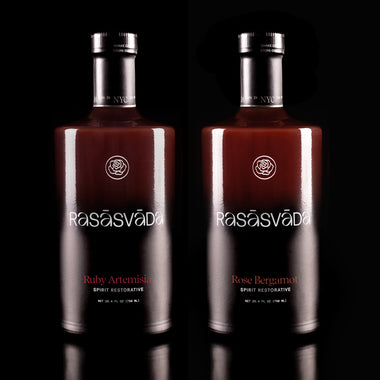The Mesima mushroom (Phellinus linteus or P.linteus), also known as “sanghuang” in China, “meshimakobu” in Japan, and “sangwhang” in Korea, is a medicinal fungus found in China, Japan, and Korea. It has been recognized as beneficial to health and an ancient medicine for more than 2000 years, prized for supporting the immune system and vital organs, as well as showing antioxidant and anti-inflammatory properties.
P.linteus is called “black hoof mushroom” in English, and it is a part of the group we collectively address as “functional mushrooms.” These include the popular fungi such as reishi, lion’s mane, and chaga mushrooms.
Botanical Overview
Botanical name: Phellinus linteus or P.linteus
Family: Hymenochaetaceae
Common name: Mesima mushroom (English), sanghuang (China), meshimakobu (Japan), sangwhang (Korea), black hoof mushroom (English)
Location: China, Japan, and Korea
What is Mesima Mushroom?

Mesima mushroom (Phellinus linteus) is a medicinal fungus revered in Traditional Chinese Medicine (TCM). Its name, “meshimakobu,” comes from Meshima Island in Japan, where it was first discovered growing on mulberry trees.
Unlike culinary mushrooms, mesima is tough, woody, and deeply bitter, traditionally prepared as teas or extracts rather than eaten directly. It has been used for centuries to support immune resilience, healthy aging, and internal balance.
Where is Mesima Mushroom Grown?

Mesima naturally grows on mulberry and other hardwood trees in the forests of China, Korea, and Japan. Because it is relatively rare in the wild, it is now carefully cultivated on hardwood logs—a method that supports both sustainability and consistency in preserving its beneficial compounds.
The History of Mesima Mushroom
The mushroom’s name, “mesimakobu” in Japanese, translates to “Women’s Island Mushroom,” referencing the Mesima Island off Japan’s coast (part of the Gotō Islands of Nagasaki) where it was traditionally harvested.
According to folklore, women of Mesima Island used this bitter mushroom in teas to support general health, vitality, and graceful aging, making it part of their daily wellness routines. Over time, mesima’s reputation spread across Korea and China, where it was traditionally used to support immune health and women’s well-being.
Black Hoof Mushroom Health Benefits
1. Boosts the Immune System
Mesima mushrooms have been gaining attention for possible immune-supporting properties. Studies are in the works to investigate how it interacts with key immune cells (including macrophages, T-cells, and natural killer (NK) cells)—your body’s first line of defense against infections and abnormal cells. Compounds in Mesima may act like a wake-up call for important immune cells. By boosting these cells, P.lineus may coordinate immune responses and strengthen the body’s ability to fight off illness.
What makes the mesima mushroom especially unique is its adaptogenic quality— adaptogens ease the effects of everyday stress. Mitigating daily stress is an important way to support your immune health.
2. Antioxidant & Anti-Inflammatory Effects
The mesima mushroom contains polysaccharides, phenolic compounds, and triterpenes, a trio of stress-fighters that take on free radicals - a type of compound that can have negative effects on health if left unchecked.
3. Antiviral & Antibacterial Support
When studied as a bioactive, mesima mushrooms have been studied to be effective support for the immune system. Research indicates that, in controlled laboratory settings, the mushroom can inhibit the replication of certain viruses. This doesn’t mean mesima can give your immune system superpowers. Researchers are still trying to figure out how to unlock mesima’s benefits in humans.
4. Vital Organ & Metabolic Support
Mesima can lend support to multiple organs and metabolic systems in the body, like the liver and kidneys. Researchers think it works by promoting compounds that are beneficial to the liver and keeping harmful compounds in check. It’s also been studied for glucose and lipid metabolism support and in assisting optimal kidney health.
The University of Utah writes: “All types of edible mushrooms can help to support blood sugar control due to their high level of beta-glucans, a type of soluble fiber that’s also present in oats and barley. Soluble fiber like the kind found in mushrooms supports blood sugar control by slowing digestion and the release of sugar into the bloodstream.”
While searching for treatments for cardiovascular issues with P.lineus, there were collectively multiple studies that assumed positive effects. Definitive research on cardiovascular health is not currently available – one study’s results were inconclusive at this time – but there are findings that mesima mushroom can help maintain heart health.
Rasāsvāda’s Mesima: Sourced with Integrity
Rasāsvāda sources Mesima mushroom directly from Japan, honoring the traditions where this remarkable fungus has been valued for centuries. Decades in the making, our direct sourcing philosophy and spirit of collaboration with farming communities worldwide ensure the integrity of both the ingredients we use and the people who grow them. We follow peak harvests around the globe, selecting only the finest micro-lots of hand-harvested, rarefied herbs, botanicals, and mushrooms for our blends. This careful attention to origin and quality allows us to share mesima’s benefits as they were meant to be experienced—potent, pure, and rooted in tradition.

Mesima in Rasāsvāda’s Black Ginger
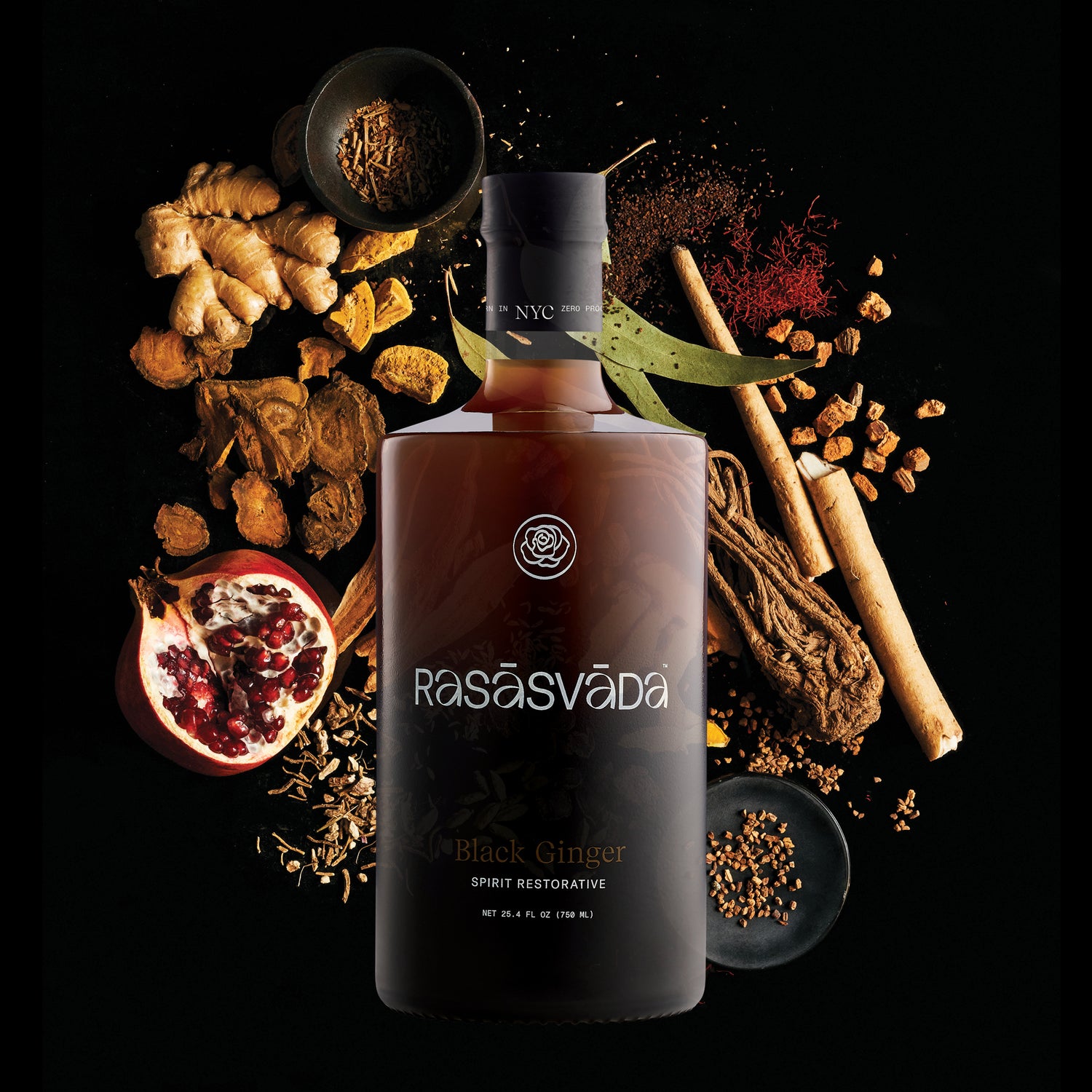
Rasāsvāda features Mesima Mushroom in the Black Ginger restorative spirit for its health-supporting properties, aligning with our mission to blend traditional herbal wisdom with modern research to make wellness more accessible and help people thrive.
Along with Reishi mushroom, adaptogenic black ginger, and detoxifying roots like burdock, dandelion, and turmeric, Black Ginger’s carefully crafted blend is designed to support gut health, detoxification, recovery, and libido, while providing anti-inflammation support to help you feel your best.
How to drink it: You can sip it neat, mix it with sparkling water, or blend it into your daily drink—whether that’s a smoothie, wellness tonic, coffee or a cocktail.
Summary
Whether you're drawn to Mesima mushroom for its immune-balancing effects, antioxidant and anti-inflammatory support, or its emerging role in overall health, it's clear that this ancient fungus is earning a modern reputation. While research is still evolving, traditional medicine and early scientific studies suggest Mesima offers real potential as a functional food.
With its deep history, promising health properties, and versatile applications—like in Rasāsvāda’s Black Ginger —Mesima is a powerful addition to any wellness routine grounded in both tradition and evidence-informed practice.
FAQs
Disclaimer
Black Ginger restorative spirit and the mesima mushroom are not intended to diagnose, prevent, treat, or cure any disease. While the mesima mushroom is generally well-tolerated, consult your doctor, especially if you’re immunocompromised or undergoing cancer treatment, as well as if you’re pregnant or nursing. Claims have not been evaluated by the Food and Drug Administration.
Sources
[The] Bioactivities and Pharmacological Applications of Phellinus linteus - PMC
Consequences of the crosstalk between monocytes/macrophages and natural killer cells - PMC
Maitake's therapeutic uses | EBSCO Research Starters
Mesima Mushroom: Resource Guide – Rhizomatic Gardens
[A] Review: The Bioactivities and Pharmacological Applications of Phellinus linteus
Role of Phenolic Compounds in Human Disease: Current Knowledge and Future Prospects
Submerged Culture of Phellinus linteus for Mass Production of Polysaccharides.
Triterpene - an overview | ScienceDirect Topics
Ultimate Guide to Mesima (Phellinus Linteus): Health Benefits & Uses
University of Utah: Functional Mushrooms
Vasodilatory Effect of Phellinus linteus Extract in Rat Mesenteric Arteries - PMC
100% plants. 0% preservatives.
